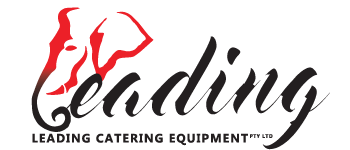Running a successful commercial kitchen requires more than culinary skills and quality service. Behind the scenes, ensuring your kitchen equipment complies with local standards is critical for maintaining safety, avoiding penalties, and earning the trust of customers and regulators. Kitchen compliance can seem overwhelming, from health and safety guidelines to energy efficiency regulations. But with proper planning and practice, you can move ahead of your competitors.
This content will offer practical steps to guarantee your commercial kitchen equipment meets local compliance standards while enhancing operational efficiency.
Get products designed to fit neatly under countertops, saving valuable floor space and perfect cooling. Check out our Underbench Fridges now.
Understand Local Regulations
The foundation of compliance lies in understanding the specific rules that govern your region.
- Health and Sanitation Regulations
Local health departments typically enforce stringent hygiene requirements to prevent contamination. Appliances like refrigerators, freezers, and dishwashers must maintain proper temperatures and be easily cleanable.
- Safety Standards
Fire safety, electrical safety, and structural standards are non-negotiable. Appliances must meet safety certifications to minimise risks.
- Energy and Environmental Laws
Many regions now mandate energy-efficient appliances to reduce environmental impact. Ensure your equipment meets these benchmarks to stay compliant and lower utility bills.
- Zoning and Building Codes
Your kitchen's layout and equipment placement should comply with building codes, including proper spacing for ventilation and emergency exits.
Tip: Stay updated on regulatory changes through local government websites or industry associations.
Invest in Compliant Products
Choosing the right commercial catering equipment is a significant step toward compliance.
- Certified Appliances
Purchase appliances certified by recognised regulatory bodies such as NSF, CE, or UL. These labels indicate that the equipment meets rigorous safety and sanitation standards.
- Energy-Efficient Options
Energy Star-rated equipment often meets compliance requirements while saving on operating costs.
- Built for Commercial Use
Ensure the equipment you purchase is designed for commercial kitchens. Residential-grade appliances rarely meet the durability and safety standards required for high-volume operations.
- Future-Proof Purchases
Opt for equipment that exceeds current standards, as regulations may become stricter.
Pro Tip: Work with reputable suppliers who provide documentation and warranties to verify compliance.
Ensure Proper Installation
Improper installation can render even the most compliant commercial kitchen equipment for sale unsafe.
- Professional Installers
Hire licensed professionals for installation. Electricians, plumbers, and gas fitters understand local codes and ensure safe and legal setups.
- Ventilation and Exhaust
Proper ventilation systems are essential for fire safety and air quality. Ensure exhaust hoods and ducts meet clearance and airflow requirements.
- Secure Connections
Gas lines and electrical connections should be inspected for leaks, loose wires, or potential hazards.
- Follow Manufacturer Guidelines
Adhere to the manufacturer's installation instructions to maintain warranties and compliance.
Tip: Conduct a post-installation inspection to ensure all systems function correctly and safely.
Develop a Maintenance Schedule
Compliance doesn't end at installation. Regular maintenance is critical to sustaining standards.
- Daily Cleaning
- Wipe down cooking surfaces and sanitise food preparation areas.
- Clean and empty grease traps and fryer vats.
- Weekly Tasks
- Inspect and clean exhaust hoods and filters.
- When you shop kitchen commercial equipment like refrigeration units, check them for consistent temperature control.
- Monthly Checks
- Inspect seals, gaskets, and hinges on ovens, freezers, and refrigerators.
- Test fire suppression systems and emergency alarms.
- Annual Servicing
- Hire professionals to do deep cleaning and product servicing.
- Calibrate appliances to ensure optimal performance.
Pro Tip: Keep an upkeep log to monitor services and repairs, which can serve as proof of due diligence during inspections.
Cook authentic stir-fried dishes rapidly with high-heat output & even heat distribution. Browse our Wok Burners here.
Train Your Staff
A knowledgeable team is your first line of defence against compliance violations.
- Initial Training
Educate employees about local standards and proper equipment use. For example, teach them how to handle knives, operate ovens, and clean appliances.
- Ongoing Education
Conduct regular workshops to update staff on regulatory changes and new equipment.
- Emergency Protocols
Train your team on fire safety measures, including how to use fire extinguishers and evacuation procedures.
- Assign Responsibilities
Designate specific roles for cleaning, maintenance, and adherence checks. This process ensures accountability and thoroughness.
Tip: Display clear, easy-to-follow instructions near complex new or second-hand kitchen equipment for quick reference.
Conduct Regular Inspections
Routine inspections help you stay ahead of potential compliance issues.
- Internal Inspections
- Check all equipment for cleanliness, damage, and proper functionality.
- Ensure that safety measures like fire suppression systems and alarms are operational.
- Third-Party Audits
- Hire certified inspectors for a comprehensive evaluation. They can locate areas for improvement and suggest solutions.
- Documentation
- Keep records of all checks and corrective actions.
- These logs are invaluable during official inspections and audits.
Streamline Compliance with Technology
Technology can simplify compliance management of commercial kitchen equipment and reduce manual errors.
- Smart Monitoring Systems
- Install real-time sensors to monitor refrigerator temperatures, humidity, and ventilation systems. These systems can send alerts for any deviations.
- Maintenance Apps
- Use apps to schedule maintenance, track cleaning tasks, and store compliance records.
- Digital Thermometers
- Replace manual thermometers with digital ones for more accurate readings and easy record-keeping.
Pro Tip: Many compliance software solutions integrate seamlessly with kitchen operations, providing comprehensive monitoring and reporting tools.
Prepare for Official Inspections
Government inspections can happen unannounced, so being prepared is essential.
- Inspection Readiness
- Keep all compliance documentation, including certificates and maintenance logs, readily accessible.
- Conduct frequent mock checks to locate and resolve potential problems.
- Address Issues Promptly
- If an inspector points out a problem, resolve it immediately. Delayed action can lead to penalties.
- Learn from Feedback
- Use inspection feedback to refine your compliance practices and equipment setup.
Common Compliance Issues and How to Resolve Them
- Improper Storage
- Always store food in designated areas at the appropriate temperature in your commercial catering equipment. Label containers to avoid cross-contamination.
- Old or Faulty Equipment
- Replace outdated appliances that fail to meet modern standards.
- Inconsistent Cleaning Practices
- Develop a cleaning checklist and ensure adherence by all staff members.
- Neglecting Updates
- Stay aware of new regulations and update your equipment and practices accordingly.
Tip: Collaborate with industry associations or consultants to stay ahead of compliance requirements.
Why Compliance Matters
Ensuring your commercial kitchen equipment for sale meets local compliance standards provides several benefits:
- Safety First
- Safeguard your staff and consumers by reducing the risk of accidents, injuries, and foodborne illnesses.
- Legal Protection
- Avoid fines, penalties, or lawsuits by adhering to regulations.
- Enhanced Reputation
- A compliant and well-maintained kitchen builds trust with customers and regulators.
- Cost Efficiency
- Properly maintained equipment operates efficiently, saving energy and reducing repair costs.
- Business Continuity
- Compliance ensures that your kitchen remains operational, even during surprise inspections.
Get highly energy-efficient products with fast heating, lowering energy bills and reducing environmental impact. Visit our Induction Cooker page for more.
Conclusion
Ensuring your commercial catering equipment meets local compliance standards is an ongoing commitment. Compliance touches every aspect of your operations, from understanding regulations to investing in certified equipment, proper installation, and routine maintenance. Train your staff, use technology to your advantage, and stay prepared for inspections to keep your kitchen running smoothly.
By prioritising compliance, you safeguard your business, employees, and customers while building a reputation for reliability and professionalism. Start today and set your kitchen up for success!






